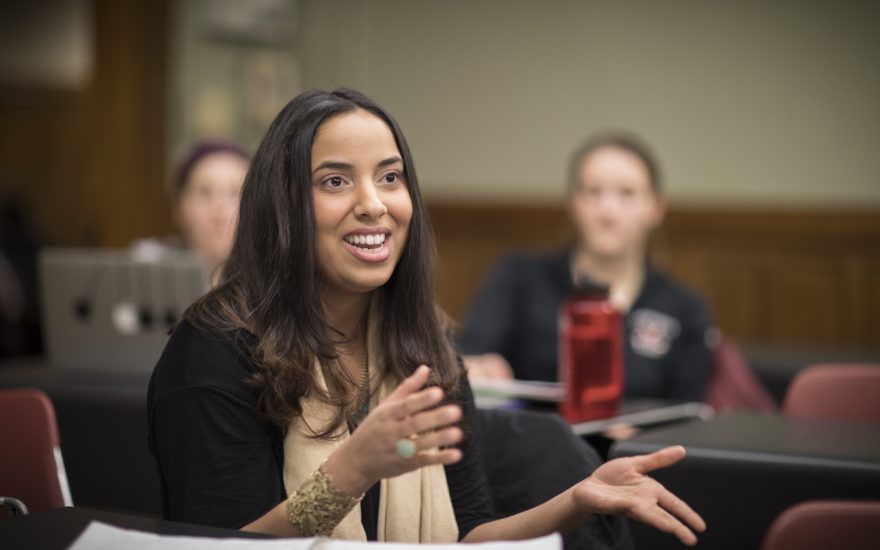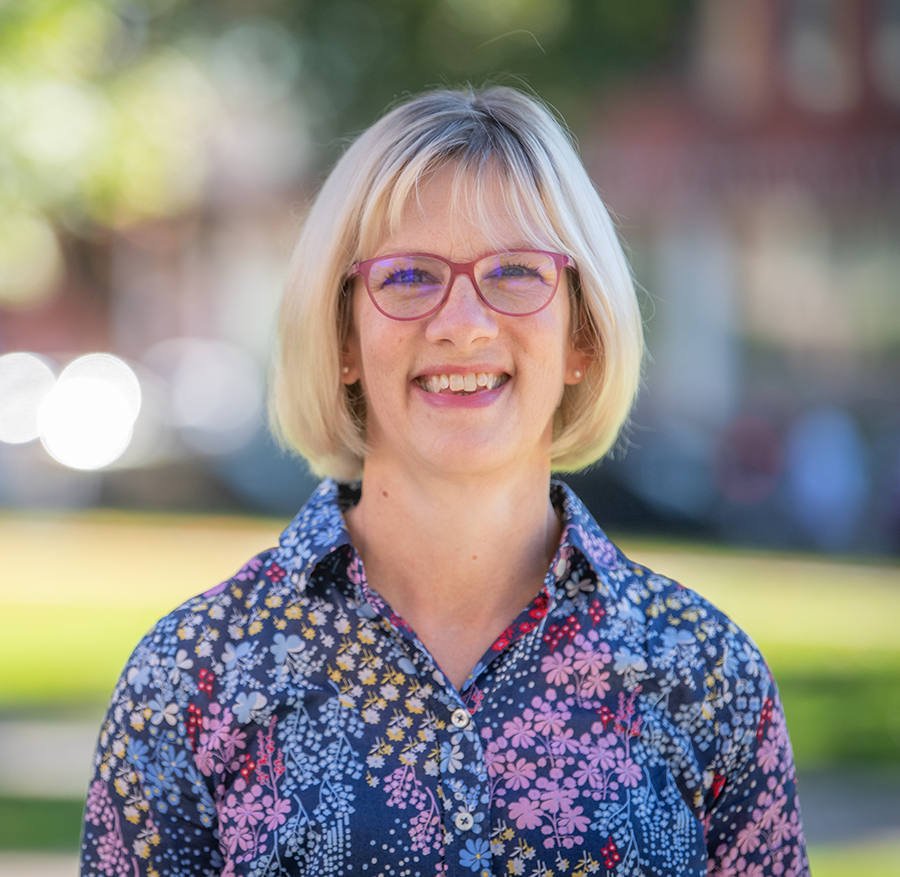Launch or advance your career as an effective, versatile health professional – and prepare to improve lives in your city, region, country, and the world.


Why a Certificate in Community and Global Health at Clark University?
- Benefit from a community and global health certification uniquely focused on improving health outcomes both internationally and domestically.
- Advance your career by specializing in policy and project management or taking the quantitative and epidemiology track.
- Make valuable connections to our partners – community, business, nonprofit, and government – in the United States and abroad.
Whether or not you’ve worked professionally in the field, you can gain experience and perspective by consulting with companies or joining research projects that connect you directly with organizations you’re passionate about.
The Global and Community Health certificate gives you a well-rounded understanding from the intersection of public health, environmental and spatial analysis, and international and community development. Studying health from these multiple perspectives and disciplines leads to deeper understanding, innovative thinking, and more effective solutions.
- Focus domestically or internationally and choose a policy/project management or quantitative/epidemiology track.
- Earn a head start in our MHS in Community and Global Health program by applying 100% of your certificate course credits toward the full degree graduation requirements.
- Explore the social and environmental dimensions of global and domestic health challenges.
- Engage in thoughtful and critical analysis of domestic and international health policy.
3 courses
- 2 core courses
- 1 elective
Global and community health needs are constantly changing – which means that employers across the public health landscape seek candidates who are innovative, nimble, and future focused.
Certificate-holders are fully prepared for successful careers in public and non-profit agencies, or for rewarding positions at for-profit corporations. Potential roles include:
- Health policy analysts
- Project managers
- Consultants for businesses
- Community health workers
- Program officers
This certificate is built on our faculty’s long-standing local community health partnerships and extensive field experience in North America, Africa, Asia, and Latin America.
Efforts address:
- Access to HIV prevention and treatment for marginalized populations.
- The emergence of non-communicable diseases worldwide.
- The health/developmental impacts of pollution on vulnerable people.
- The spatial distribution and impact of environmental health hazards and health disparities among immigrants and refugees.
- The development of policies to jointly improve job opportunities and health outcomes.
- Approaches to Global Health
- Approaches to Community Health
- Introduction to Epidemiology and Biostatistics
- Community-Based Health Research
- Spatial Analysis for Health
- Health In/Equity: Social Determinants and Policy Solutions
Frequently Asked Questions
What can I do with a certificate in Community and Global Health?
At Clark, you’ll work alongside world-class researchers and partner with communities to face challenges with them, not simply for them. You’ll gain experience addressing urgent public health challenges in integrative, novel, and lasting ways.
Certificate-holders are fully prepared for successful careers in public and non-profit agencies, or for rewarding positions at for-profit corporations. Potential roles include:
- Health policy analysts
- Project managers
- Consultants for businesses
- Community health workers
- Program officers
What skills will I learn?
Be prepared to be an in-demand digital mastery expert.
Certificate holders will learn to:
- Recognize the fundamental concepts of business ethics and apply them to digital marketing practices.
- Understand the roles of individuals, profit organizations, non-profit organizations, governments, and cultural norms in the shaping of digital citizenship
- Recognize and analyze ethical dilemmas and develop conflict resolution and risk mitigation strategies as they relate to digital marketing.
- Assess and address policy and ethical concerns as they relate to digital marketing.
- Build competencies in online privacy and information collection, handling, and sharing that could be of ethical concern as well as predict the risks and impacts of their application.
What will I learn beyond the classroom?
Our program is designed for you to conduct hands-on research that connects you directly with organizations you’re passionate about. You will develop understanding and insight, design new approaches, and implement creative solutions to complex problems. This learning-by-doing approach addresses the social, political, cultural, economic technological and ecological contexts of environment-development problems.
You engage in fieldwork led by faculty on the forefront of change:
- Partner with towns in Massachusetts to investigate topics such as how environmental pollution impacts the health of the population, especially children.
- Join an effort to make food production and consumption more sustainable in Worcester County.
- Engage in Clark’s partnership with SolarFlair in Charlton, Mass.
- Assist efforts through the Mosakowski Institute for Public Enterprise and the George Perkins Marsh Institute, the latter internationally recognized for its work on sustainability science and environmental risk and hazards.
- Connect with the alumni-run Community Development Training Institute, a nonprofit community development consulting firm.

The health effects of social forces
Professor Ellen Foley is a medical anthropologist whose research focuses on the ways that intertwined global, national, and local social forces shape vulnerability to disease, health status, and access to medical care, particularly in sub-Saharan Africa.
“Clark brings unconventional thinking to longstanding problems. Our students become resilient problem solvers who come up with solutions you won’t find elsewhere – speaking with donors, working hands-on with affected populations, organizing supply chains.
—Ellen Foley, Ph.D.
Associate Professor
Academic Excellence. Global Reach. Career Success.
Join our supportive community of scholars. Ready to take the next step?

